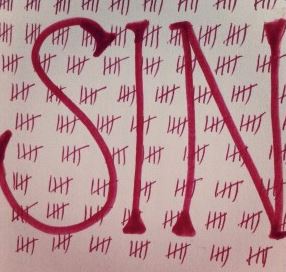God called Israel his first born son when addressing Pharaoh. But now in this context of the book of Jeremiah we read that desiring the good things of life lead them back into slavery. They went from an honored position to a disgraceful one. Jeremiah expresses this in  Jeremiah 2:16-17. He writes, “Moreover, the men of Memphis and Tahpanhes have shaved the crown of your head. Have you not brought this upon yourself by forsaking the LORD your God, when he led you in the way?” Constance concludes, “Lastly they are made captives in Egypt with shame brought upon them, the hair being shaven from their heads. Humiliation and suffering had been inflicted upon them.”[1]
Jeremiah 2:16-17. He writes, “Moreover, the men of Memphis and Tahpanhes have shaved the crown of your head. Have you not brought this upon yourself by forsaking the LORD your God, when he led you in the way?” Constance concludes, “Lastly they are made captives in Egypt with shame brought upon them, the hair being shaven from their heads. Humiliation and suffering had been inflicted upon them.”[1]
Gingrich sums up Jeremiah’s use of the image of Israel becoming humiliated slaves by saying, “Israel, the Northern Kingdom, had had her cities spoiled and her people carried away captive by the Assyrians and their allies (‘the young lions’) and Judah had had the crown of her head broken by the Egyptians (‘the children of Noph [Memphis] and Tahapanes [a town on the border between Egypt and Palestine]’). Why had these calamities come upon Israel and Judah? Was it not because these nations had forsaken their God Jehovah soon after He led them through the wilderness?”[2]
Many of our problems we bring upon ourselves. I know that’s true for me. The sins of Israel were marked on their heads by Egypt. There was a visible sign of their failure. If I had a notch carved on me for every time I brought problems upon myself I would be unrecognizable except for the scars. The Psalmist often cries out to God in the consequences he has brought on himself by his sin. He pleads with God for forgiveness. Lady Macbeth looks at her murderer’s hands in horror: “Out, damned spot! out, I say!… Hell is murky… Here’s the smell of the blood still: all the perfumes of Arabia will not sweeten this little hand.” Knight says, “…God does not ‘mark’ iniquities at all as iniquities, he ‘marks’ them only as occasions for the showing of his grace and forgiveness!”[3]
[1] Mrs. T. M. Constance, Jeremiah, vol. 1 (Dickson, TN: Explorer’s Bible Study, 1978), 11–12.
[2] Roy E. Gingrich, The Book of Jeremiah (Memphis, TN: Riverside Printing, 2001), 9.
[3] George Angus Fulton Knight, Psalms, vol. 2, The Daily Study Bible Series (Louisville, KY: Westminster John Knox Press, 2001), 287.